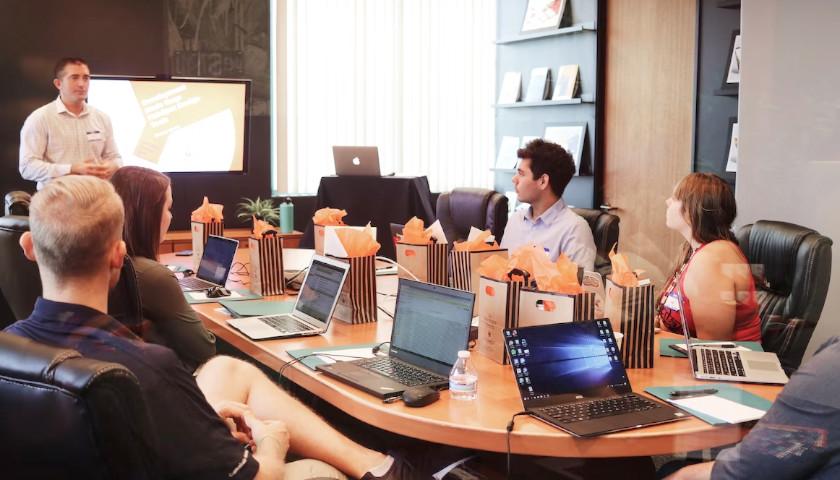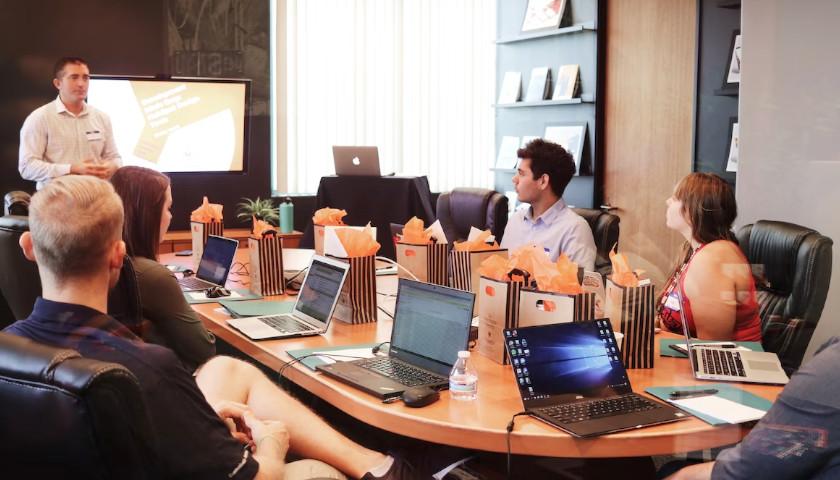by Morgan Sweeney
Recent advances in quantum computing have caused industry experts to believe it’s becoming viable, and Virginia wants in on the action, according to the latest edition of the Virginia Economic Review.
The Virginia Economic Development Partnership, the state’s economic development authority, used the most recent issue of its quarterly magazine to dive into the field of quantum computing – what it is and potential ways to bring it to Virginia.
Joseph Broz, vice president of quantum growth and market development for IBM, puts quantum computing in a class by itself in his interview with the Review.
“The quantum computing promise is that we’ll be able to solve problems that have been heretofore unsolvable, that quantum computing is not just a faster or better version of the quantum supercomputers or classical systems that we use today, but that’s it’s an entirely new form of computation,” Broz told the Review.
The bit is the most basic unit of information in the binary system by which most computers operate. Bits can hold values of zero or one. The qubit is the most basic data unit of quantum computing, which can hold multiple values simultaneously.
Until recently, quantum computers have been noisy, and their computing has been easily disrupted by normal environmental variables, according to Broz. But IBM has found ways to remediate some of those issues, opening up a vision for the future – which might resemble Virginia’s present, physically. For now, expanded computing power means expanded size.
“I think we’ll see this as quantum data centers – quantum-centric supercomputers. But we are pushing toward our extremely large systems. We’ve announced plans to put in place, within the next decade, a 100,000 qubit machine,” Broz said.
As Northern Virginia is already the data center capital of the world, Virginia Economic Development Partnership President Jason El-Koubi thinks quantum computing could be a natural fit with industries and an environment already thriving in the commonwealth.
“Many of the industry’s major players already operate in Virginia, including Amazon, Amazon Web Services, Boeing, Google, IBM, MITRE, and Northrop Grumman,” wrote El-Koubi. “Beyond that, Virginia is already a leader in many of the industries that will be crucial in building quantum capabilities, including aerospace manufacturing, software, data centers, defense, and more.”
El-Koubi also noted that the omnipresence of government agencies in Washington, D.C., and Virginia and their “massive research capabilities” are fertile ground for an industry that still largely dwells in the theoretical.
Broz told the Review that four things could create a “vibrant ecosystem” for quantum: Workforce, research and academic communities, local industries engaging in quantum, and physical access to quantum computer systems.
Virginia universities are already conducting quantum research, and to the extent that the state can cultivate the other components, quantum could play a significant role in the commonwealth’s future.
– – –
Morgan Sweeney is a staff writer covering Virginia and Maryland for The Center Square. Morgan was an active member of the journalism program as an undergraduate at Hillsdale College and previously freelanced for The Center Square.
Photo “Quantum Computing” by IBM Research. CC BY-ND 2.0.





